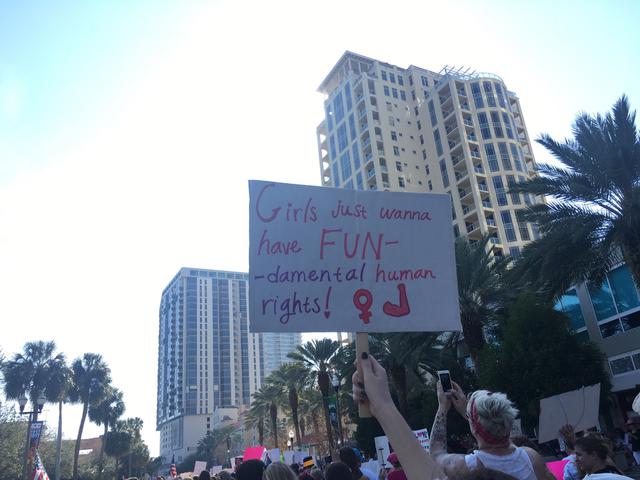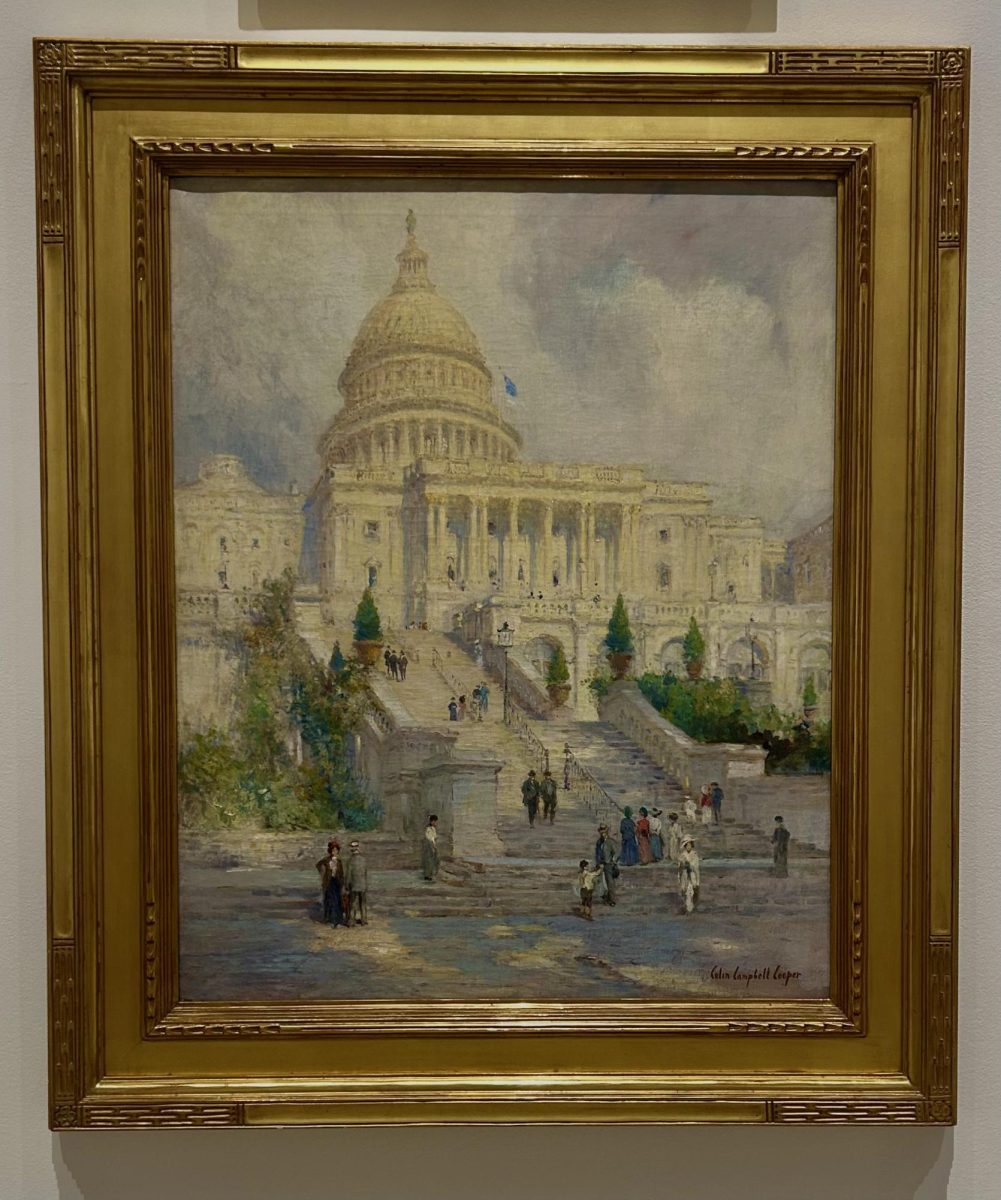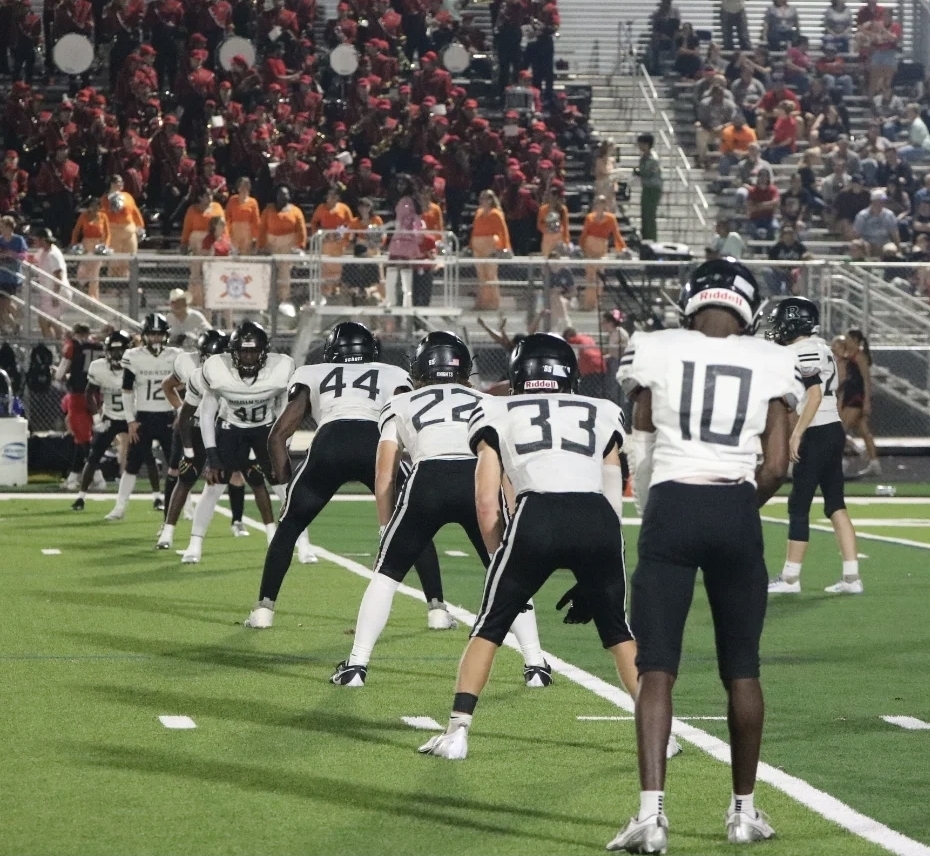Yes, we still need feminism
Women’s rights aren’t irrelevant in America- they’re more important than ever
October 3, 2017
Women in America have come a long way since the days when girls were raised to be housewives and preform domestic chores, an even longer way since the suffragettes who had to campaign and protest for decades to gain the right to vote, and a much, much longer way since the days of tight corsets and arranged marriages. However, that doesn’t mean that life is perfect for American women, or that a feminist movement is unnecessary in our country. We are still underrepresented in both politics and the media, face unequal pay, and objectified as a matter of course.
Only 325 women have served as U.S. Representatives, Delegates, or Senators, since the 1917, as opposed to the thousands of men who have filled those positions since our federal government was first established in 1788. It bears repeating that our country, in the entirety of its 240-year history, has never elected a female president.
News headlines regularly sexualize women, including irrelevant information about females’ outfits or bodies that has no pertinence to the news story that they are involved in. Headlines also tend to focus on women’s relationships with men (remember that “wife of footballer player wins gold medal” headline from the most recent summer Olympics?) as opposed to women as individuals.
From an early age onwards, girls are pressured to conform to unrealistic beauty standards and are taught to associate their sense of self-worth with their appearance. They are instructed to shave all of their body hair (something no one ever seems to bother their male peers about) and to remain skinny (a standard that can be harmful towards self-esteem and result in eating disorders).
When men or boys objectify or make suggestive comments about their female peers, we laugh it off as typical male behavior, never mind the discomfort it may cause. Men escape blame for catcalling or harassment because “boys will be boys” or because the woman was wearing a revealing outfit and was therefore “asking for it”. Women face constant double standards when it comes to appearances; if they wear lots of makeup and revealing outfits, then they are branded sluts, but if they eschew makeup and dress modestly, then they are suddenly prudes.
Women are regularly paid less for doing the exact some job as men, an issue that has plagued them ever since they first entered the workforce centuries ago but that male lawmakers are still trying to deny exists. Women are still criticized in some social circles for prioritizing careers over families, and women who work and have children are often told that there is no way they can do both without neglecting one; even though no one bats an eye at working fathers and husbands.
We use the term “teenage girl” as derogatory expression or say that someone does something “like a girl” as a form of insult; what kind of message is this conveying to young girls about their place in our society? It teaches them that girls as a rule are weak, and that they must distinguish themselves from and put down the other members of their gender in order to be strong. Young girls are rarely exposed to examples of positive female friendships in books and on TV, perpetuating the myth of catfights and girl-on-girl hate.
Because the discrimination faced by women today is undoubtedly subtler than that of women in the past have faced, much of the male (as well as some of the female population) will argue that the women and men are now treated as equals in American society and that the feminist movement is no longer necessary. Under our current federal government, women’s reproductive rights are being impinged upon and guidelines for the (usually female) victims of campus sexual assault are being rolled back. It is time for people who believe that women and men should be treated equally to speak up, and for those whom claim to hold the former belief but are anti-feminist to reexamine their values.
I do not necessarily fault the men who do not believe a women’s rights movement is necessary for their beliefs; I suppose it can be hard to notice problems that don’t affect you. But it is time that we address the sexist, patriarchal undertones of our society, otherwise they will continue to negatively impact both American women and men. I think it is important that men who are against sexism be willing to confront misogyny and call-out their peers, just as it is important that white people who are against racism be willing to confront bigotry and call-out their peers. I urge the people who claim that we no longer need a feminist movement to try and look beyond their own experiences and try to envision how others might face sexism. A little empathy and a willingness to learn can go along way in this situation.











